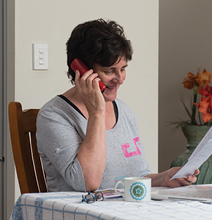Representatives of regional and local authorities, MEPs, and older people’s associations participated together in a Public Hearing organised by the Committee of Regions together with Ms Magda Kosane Kovacs, co-President of the European Parliament’s Intergroup on Ageing, and with the support of AGE on better meeting the needs of older people. This public hearing took place on Tuesday 9 December in the Committee of Regions in Brussels.
Ms Constance Hannify, Chair of the CoR ECOS Commission, highlighted the important role that local and regional authorities play in meeting the needs of their ageing population and promoting equal opportunities for all. Sven Matzke DG Employment, Social Affairs and Equal Opportunities presented the 2nd European Demography Report issued on 24 November 2008 and outlined the five key policy directions which were also already mentioned in the 2006 report on the demographic future, namely: (1) promoting demographic renewal, 2) promoting employment, 3) promoting a more productive and ageing society, 4) receiving and integrating migrants and 5) ensuring sustainability of public finances.
Speakers and participants agreed that it is important to involve all levels of decision-making in creating an integrated approach to the problem of the ageing population. The responsibility of demographic ageing is not only a task for the Member States and the EU, but also for the vast majority of European regions that are confronted with a rapid population decline. Many of their policies and services are affected by the demographic change, in particular their health and long-term care service provisions.
The EU and the Member States should therefore provide support to the regional and local authorities to help them find sustainable solutions to offer services that are adapted to the needs of older people, such as accessible public transport, housing and infrastructure; facilitating access of older people to employment; ensuring quality in health and long term care services, preventing elder abuse, fighting against discrimination, promoting active citizenship and cross-generational initiatives; and increasing social participation and involvement of older people in community life.
The joint hearing also showed that the debate on ageing should not only focus on the financial burden posed on society but also on the important and positive contributions that older people make to society: in their role as carers for family or relatives, and their active involvement in volunteering and in community life.
Consequently, the proposal by Commissioner Špidla to hold a European Year on Active Ageing and Intergenerational Solidarity in 2012 was very much welcomed, as such a year will highlight the important role that older people can play in society.
Future actions by AGE:
AGE and the Committee of Regions have therefore decided to issue a joint brochure in 2009 on “Ageing Well in Europe”, a toolkit for regional and local actors on relevant EU funding available and examples of good initiatives and practices to better meet the needs of older people.
This toolkit will help local and regional actors develop policies and initiatives to promote active ageing and greater solidarity between generations. The toolkit will also help prepare for the 2012 European Year on Active Ageing and Intergenerational Solidarity proposed by Commissioner Špidla.






